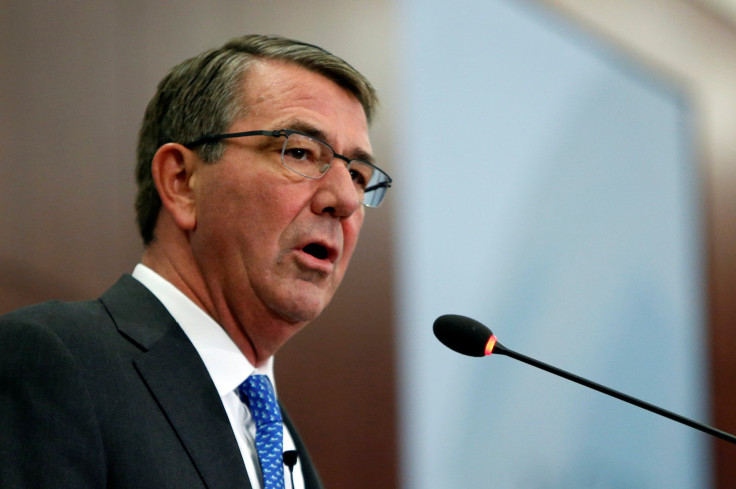US Army Tattoo, Marijuana Policy 2016: Military Reviews Rules And Regulations For Army Soldiers

If you’re a stoner with tattoos and want to serve your country, your time may be coming.
The military is rethinking some of the restrictions that may be keeping modern recruits out of the ranks, Defense Secretary Ash Carter announced Tuesday. Traits the military is looking at seem to reflect an evolving America that is openly (and in many cases legally) using marijuana, getting more tattoos and failing to live healthy lifestyles.
“We’re going to review and update these standards as appropriate,” Carter told reserve officer training corps cadets at the City College of New York. “Now, some of these things we’ll never be able to compromise on. And we will always have to maintain high standards. But at the same time, these benchmarks must be kept relevant for both today’s force and tomorrow’s, meaning we have to ensure they’re not unnecessarily restrictive."
The reviews of policy on pot use, physical fitness and tattoos was informed by active-duty recruiters, many of whom have said they’re worried that the standards are turning away potentially skilled soldiers, Carter said. The potential shift comes amid a recalibration of the military itself as well, which is less reliant on infantry operations than before and increasingly interested in technical skills that can be used in cyber warfare and intelligence analysis.
Altogether, some 70 percent of America’s youth aren’t eligible to serve in the military because of traditional standards like those.
More and more Americans are falling into those three categories that the Defense Department is taking a look at.
The tattoo industry has burst into pop-culture from the world of rock stars and now boasts over $2 billion in annual revenue with 36 percent of Americans aged 18-25 saying they have at least one, according to the Pew Research Center.
Less than 3 percent of Americans are said to be living a “healthy lifestyle.”
But when it comes to pot, millennials are more likely than the generation before them to toke up: As more states legalize the drug for recreational uses, America’s youth are 16 percent more likely to smoke than those in Generation X.
© Copyright IBTimes 2024. All rights reserved.












